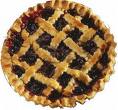Must reading in last week’s New York Times Magazine: Douglas McCollam explores the scramble over compensation after the BP TransOcean gulf oil spill, profiling Texas trial lawyer Tony Buzbee, who’s among those leading resistance to the Ken Feinberg administered-compensation-fund way of handling claims. It offers a much broader and better-informed perspective on wider litigation trends than is usual in such stories.
Archive for 2010
“Lawyer Who Billed Fla. for More than 24 Hours in a Day Won’t Be Disciplined”
A disciplinary committee said it lacked probable cause to charge a court-appointed criminal defense lawyer from Jacksonville, though it described his billing standards as “not consistent with the high standards of our profession.” [ABA Journal, Florida Times-Union]
Federal taxpayers vs. federal taxpayers
I’ve got a post up at Cato at Liberty on the Freddie-Mac-versus-IRS litigation that Bloomberg columnist Jonathan Weil calls the “stupidest lawsuit ever.”
P.S. And welcome Mickey Kaus readers (“Stupidest lawsuit ever? Tough category”).
Guardian advances litigation urban legends
The venerable British newspaper — at least someone there in charge of selecting pictures and captions — seems to have fallen for an old bit of fiction about an insurance customer who supposedly tried to collect on the loss of his cigars via fire, as an example of “odd American lawsuits.” One wonders why papers fall back on hoary email legends when they could have readily found hundreds upon hundreds of genuine examples of odd American lawsuits right here.
Incidentally, the reader who makes it through the underlying opinion piece (by Neil Rose) does eventually learn that the cigar fable is one of a class of stories “most of [which] are apocryphal or didn’t get anywhere, such as the case against the dry cleaners.” This is not really up to snuff as a way of warning readers off the cigar tale, and it’s grossly misleading as a description of the Roy Pearson dry-cleaners pants suit, which Pearson kept going for years at a very real and serious cost to his targets, the Chung family. Much of the point of the Neil Rose article seems to be to assure British readers that the American way of litigation may be safely emulated, since its costs are not really so bad. If that’s the argument, shouldn’t the piece convey a fairer picture of those costs?
November 12 roundup
- By reader acclaim: “Rules in Chandler restrooms: Don’t drink from toilets” [Arizona Republic]
- Arbitration and class actions before the Supreme Court: “Misconceptions about Concepcion” [Andrew Trask]
- County commissioner candidate sues county employees, rival over election flyer [Whidbey Island, Wash. News-Times]
- Fannie’s Tammany: MacLean, Nocera on the politicized world of the mortgage GSEs [Tabarrok]
- $56 million obstetrics verdict against Westchester County, N.Y. hospital [Hochfelder]
- Legal Ethics Forum is looking for guest bloggers;
- New Federalist Society white papers on Ohio and North Carolina supreme courts;
- “When Art Imitates Life: Suing for Defamation in Fiction” [Jane Kleiner, Citizen Media Law]
Claim: touching smokers’ clothing can cause “massive” nerve damage
Accurate science, or Science For Your Own Good? [Michael Siegel]
“Father Sues District Over Reading About Slavery”
From comments: Before feeding the hungry…
…better check whether your church is licensed as a commercial  food-preparation facility [Density Duck in comments:]
food-preparation facility [Density Duck in comments:]
…Our local church had to shut down its Feed-The-Hungry operation (where a bunch of retired housewives cooked simple meals and froze them to give to the local soup kitchen.) The reason is that the church kitchen wasn’t certified as a commercial food-preparation facility, as one of the lawyers in the congregation helpfully pointed out to the lady in charge of the program.
We’ve covered the issue periodically before.
Forthcoming: “The Lawyer-Judge Bias in the American Legal System”
Sounds promising, from Tennessee law professor Benjamin Barton in January (via Glenn Reynolds):
Virtually all American judges are former lawyers, a shared background that results in the lawyer-judge bias. This book argues that these lawyer-judges instinctively favor the legal profession in their decisions and that this bias has far-reaching and deleterious effects on American law.
Unpleasant buzz
Patrick at Popehat is not happy with a class action settlement over consumer non-injury from the Google Buzz service:
Mason and Ram will apply for, and probably get, $2,125,000 of that [$8.5 million] common fund, for all of their hard work representing thousands of people just like me, who weren’t damaged by Google because they ignored Google’s offer to try Google Buzz, a demonstrated failure that’s used by about seven people (not all of whom are class representatives) nationwide. …
If there’s any justice, and there isn’t, the Northern District of California will award Mason and Ram a dollar for every consumer who was injured by Google Buzz. That and five hundred more dollars will cover their airfare home.
